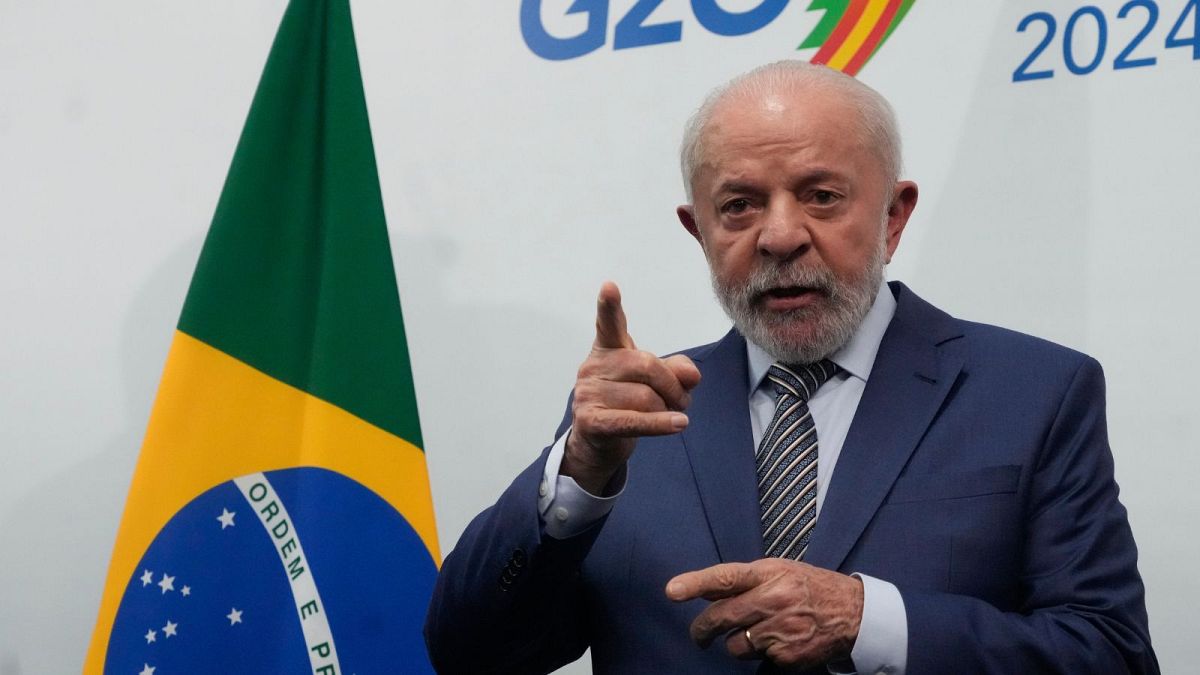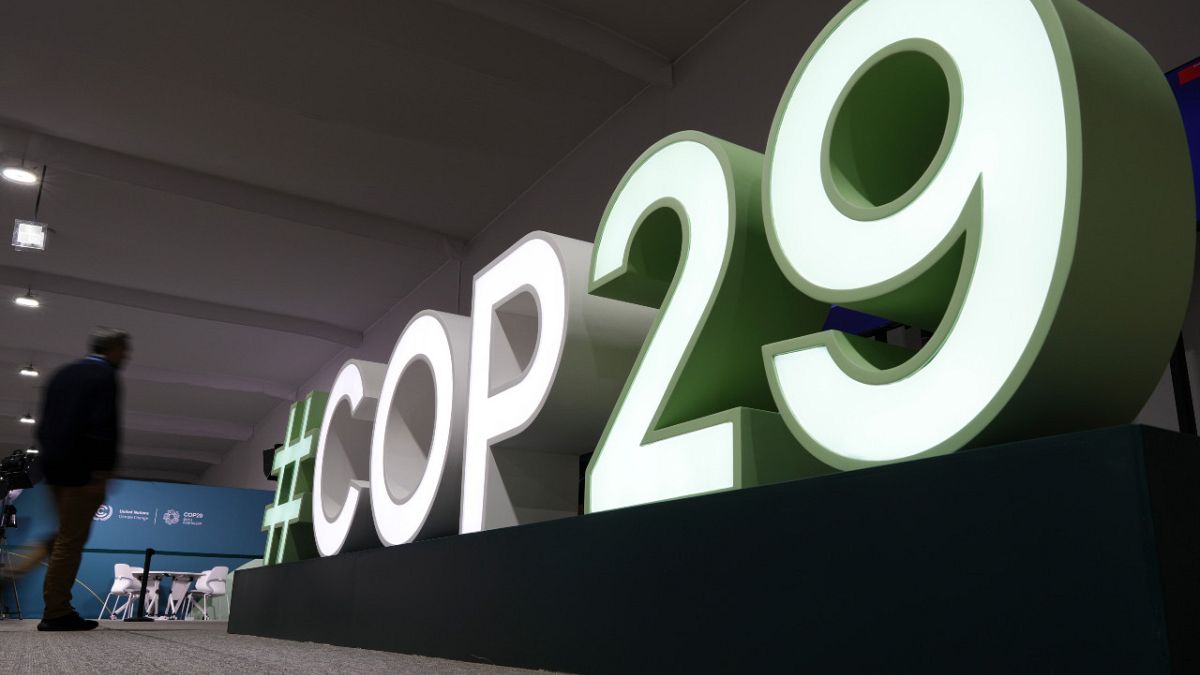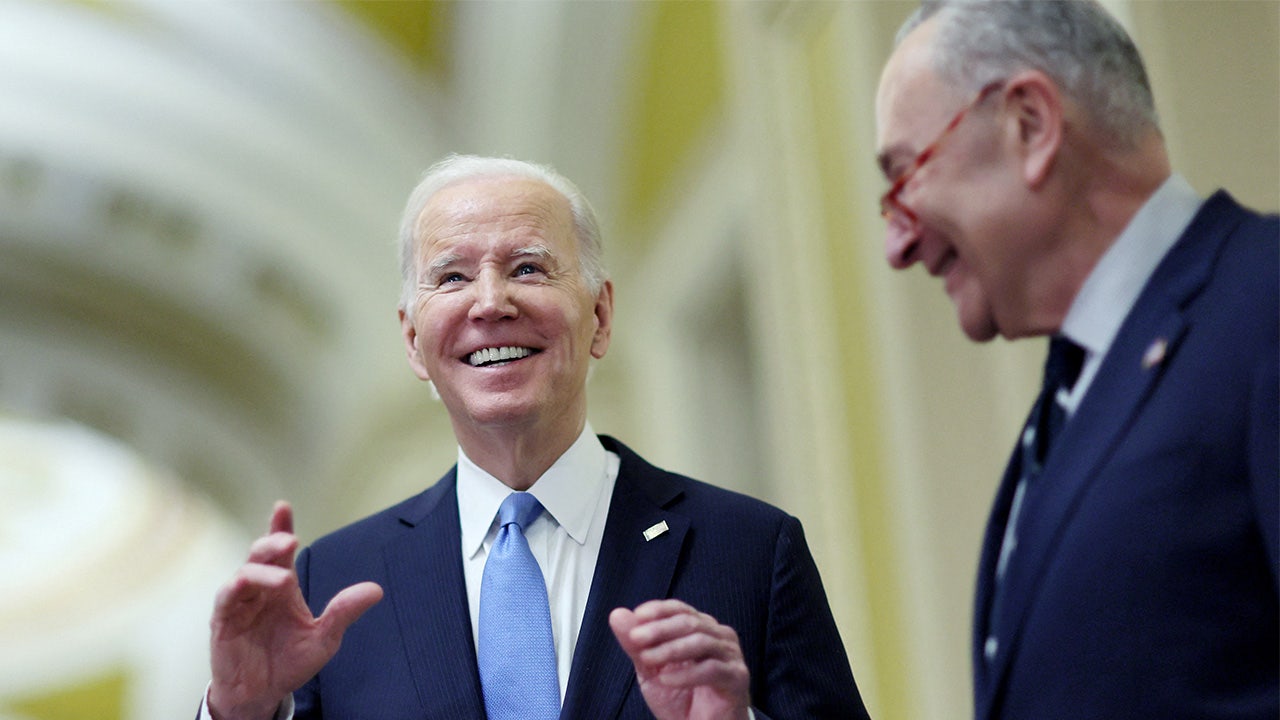World
‘Not very welcome’: Unease in Brussels after Orbán-Putin meeting
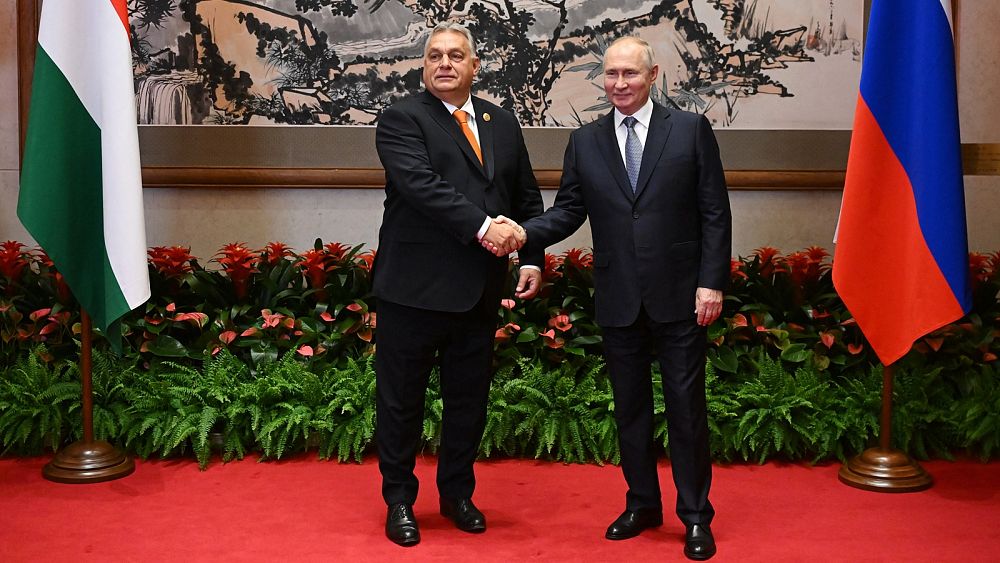
The images of Hungarian Prime Minister Viktor Orbán and Russian President Vladimir Putin shaking hands in China have caused unease in Brussels at a time of rising concerns about fractures in Western unity.
The bilateral meeting between the leaders took place on Tuesday on the sidelines of an international forum hosted by Chinese President Xi Jinping to celebrate the country’s Belt and Road Initiative, a sprawling infrastructure project that involves more than 150 nations.
The in-person talks, which saw Orbán and Putin seated next to each other, focused on “the areas of oil and gas deliveries as well as nuclear energy,” according to a short read-out released by the Hungarian government.
“PM Orbán emphasized the importance of peace, saying that an end to the flow of refugees, sanctions and the fighting was key for the entire continent, including Hungary,” the statement said.
Unsurprisingly, the meeting and the handshake have gone down badly in Brussels, according to senior diplomats from different countries who spoke on condition of anonymity to freely express their thoughts and feelings.
The issue was discussed during a gathering of ambassadors on Wednesday, where some representatives asked their Hungarian counterpart for clarifications.
“It was not very welcomed, let’s just say that,” said a senior diplomat, referring to Putin as a source of “all kinds of problems” for the bloc. “There was a lot of regret. The signal it sends out was not positive.”
“There is a signal that we cannot completely ignore, at the same time, we have always managed to achieve” consensus on Ukraine, said a second diplomat.
The optics are self-explanatory.
Vladimir Putin is a foreign president under EU sanctions who has been accused, among other things, of committing war crimes against the Ukrainian population, weaponising energy supplies to wreak economic havoc, waging incessant disinformation campaigns to destabilise liberal democratic systems and pursuing a neo-imperialistic agenda to bend the rules-based world order established at the end of World War II.
Putin has been placed under an arrest warrant by the International Criminal Court (ICC) for the unlawful deportation and transfer of Ukrainian children.
Orbán, for his part, is the leader of an EU member state who is supposed to follow and honour the common strategies agreed upon by the European Council, of which he is part. Prior to meeting Putin, the Hungarian premier informed European Council President Charles Michel, who “strongly advised against it,” according to Michel’s spokesperson.
“It’s crucial that everybody sticks to the policy that we have. If there’s a leader that meets with Putin, that’s clearly not in line with the policy,” said another diplomat
While Orbán has been in the past denounced for blocking or watering down collective European action in a way that appeared to favour Russia’s interests, the face-to-face encounter has raised concerns about possible security breaches.
Diplomats rely on confidential information to conduct negotiations and make decisions. The protection of communications is particularly important in highly sensitive topics, such as sanctions, defence, energy and technology.
“When we meet at the Council, we expect everybody to adhere to the rules and act in good faith. That applies to everybody,” the diplomat added. “Images like this don’t fortify, to say the least, that image of all of us in a comfortable setting sharing information with each other. I’m sure there are colleagues who wonder what’s getting out of the room.”
However, the first diplomat quoted above played down the risk, saying there was “no feeling of a Trojan horse” despite persistent disagreements on the Ukraine war.
Budapest has for months blocked a €500-million tranche of EU military assistance for Kyiv, an impasse that has become a sore point of friction in Brussels.
The veto began in early May after Ukraine’s National Agency on Corruption Prevention (NACP) added OTP Bank, Hungary’s largest bank, to its name-shaming list of “international sponsors of war.” Budapest slammed the move as “unacceptable” and “outrageous,” and demanded a retraction in exchange for the EU aid.
Following months of no progress, the NACP took earlier this month the decision to permanently remove the bank from the list. But the concession failed to change Hungary’s mind and the veto remains in place as of today.
“There are different issues that are still being discussed,” said a senior official working for the EU institutions, without going into details. “We expect, frankly speaking, sooner rather than later we will have an agreement. We’re still working on that.”
This piece has been updated with more reactions.

World
WHO says mpox remains public health emergency of international concern

UN health agency says its decision is ‘based on the rising number and continuing geographic spread of cases’.
The World Health Organization (WHO) says it will keep its alert for mpox at the highest level amid a surge in cases.
A WHO committee made up of about a dozen independent experts made the decision at a meeting in Geneva on Friday, three months after the WHO first declared a public health emergency of global concern in August.
The WHO said its decision was “based on the rising number and continuing geographic spread of cases, operational challenges in the field, and the need to mount and sustain a cohesive response across countries and partners”.
There has been a surge in mpox cases this year, predominantly focused in the Democratic Republic of the Congo (DRC) and neighbouring countries.
A first batch of vaccines was rolled out last month and appears to have had an impact on containing cases of the highly contagious disease, but the United Nations agency has been waiting for substantial proof to discuss the impact of vaccinations.
The African Union’s health watchdog warned at the end of October that the mpox outbreak was still not under control and called for more resources to avoid a pandemic that it said could potentially be worse than COVID-19.
The virus is usually mild, but it can be fatal in rare cases.
Mpox is believed to have killed hundreds of people in the DRC and elsewhere last year as it also spread to Burundi, Kenya, Rwanda, Nigeria and Uganda, causing a continent-wide emergency.
The disease can be spread through close contact with an infected person, sexual activity or breathing in infectious particles. The virus then replicates and spreads to the lymph nodes, leading them to swell before further spreading and causing rashes or lesions.
World
Jon Hamm’s Your Friends & Neighbors Renewed at Apple TV+ Ahead of Series Premiere — Get Release Date

ad
World
Israel keeping its ‘eyes open’ for Iranian attacks during Trump transition period, ambassador says
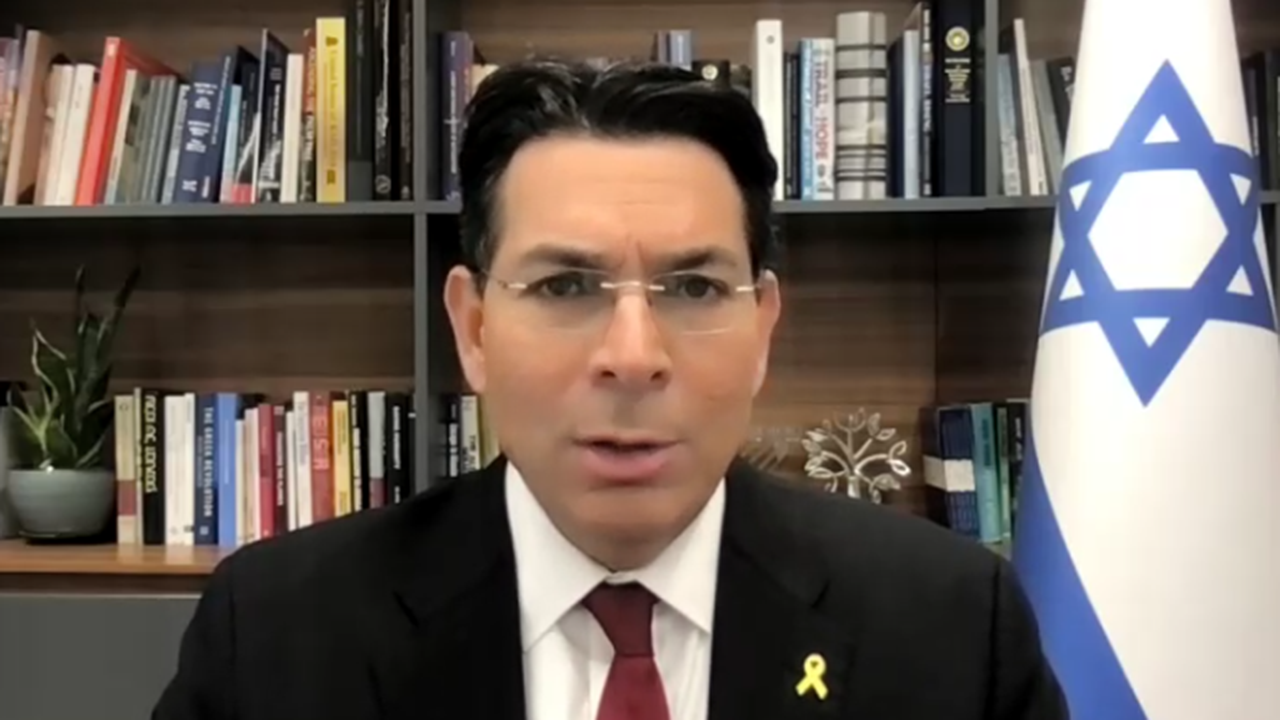
Israel’s U.N. Ambassador Danny Danon tells Fox News Digital that his country is keeping its “eyes open” for any potential aggression from Iran during the Trump transition period, adding it would be a “mistake” for the Islamic Republic to carry out an attack.
The comments come after Iranian Foreign Minister Abbas Araghchi vowed earlier this week that Iran would retaliate against Israel for the strategic airstrikes it carried out against Tehran on Oct. 26. Araghchi was quoted in Iranian media saying “we have not given up our right to react, and we will react in our time and in the way we see fit.”
“I would advise him not to challenge us. We have already shown our capabilities. We have proved that they are vulnerable. We can actually target any location in Iran. They know that,” Danon told Fox News Digital.
“So I would advise them not to make that mistake. If they think that now, because of the transition period, they can take advantage of it, they are wrong,” he added. “We are keeping our eyes open and we are ready for all scenarios.”
ICC REJECTS ISRAELI APPEALS, ISSUES ARREST WARRANTS FOR BENJAMIN NETANYAHU, YOAV GALLANT
Israel’s U.N. Ambassador Danny Danon tells Fox News Digital that his country is “ready for all scenarios” coming from Iran during the Trump transition period. (Fox News)
Danon says he believes one of the most important challenges for the incoming Trump administration will be the way the U.S. deals with Iran.
“Regarding the new administration, I think the most important challenge will be the way you challenge Iran, the aggression, the threat of the Iranian regime. I believe that the U.S. will have to go back to a leading position on this issue,” he told Fox News Digital.
“We are fighting the same enemies, the enemies of the United States of America. When you look at the Iranians, the Houthis, Hezbollah, Hamas, all those bad actors that are coming against Israel… that is the enemy of the United States. So I think every American should support us and understand what we are doing now,” Danon also said.
IRAN HIDING MISSILE, DRONE PROGRAMS UNDER GUISE OF COMMERCIAL FRONT TO EVADE SANCTIONS
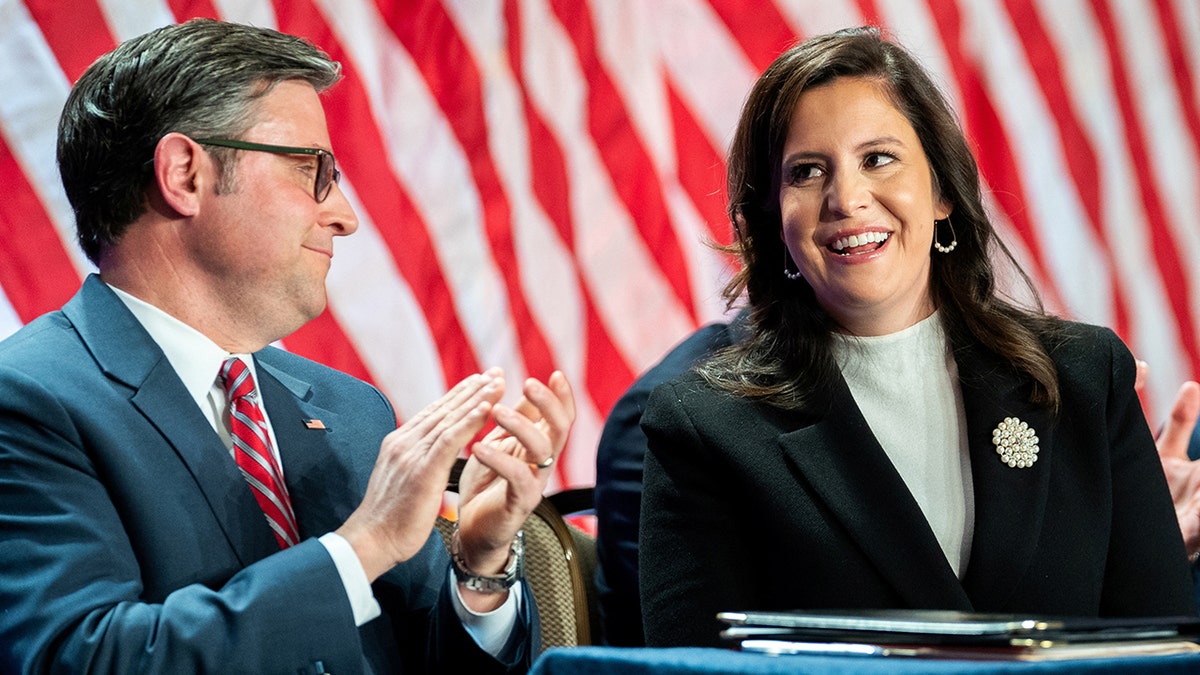
Rep. Elise Stefanik, R-N.Y., is acknowledged by President-elect Donald Trump alongside Speaker of the House Mike Johnson during a meeting with House Republicans at the Hyatt Regency hotel in Washington, D.C., on Nov. 13, 2024. Stefanik has been chosen by President-elect Donald Trump as the next U.S. ambassador to the United Nations. (Allison Robbert/Pool via REUTERS)
Danon spoke as the U.S. vetoed a draft resolution against Israel at the U.N. Security Council on Wednesday.
The resolution, which was overseen by Algeria, sought an “immediate, unconditional and permanent cease-fire” to be imposed on Israel. The resolution did not guarantee the release of the hostages still being held by Hamas within Gaza.

Israeli Air Force planes departing for the strikes in Iran on Oct. 26. (IDF Spokesman’s Unit)
“It was a shameful resolution because… it didn’t have the linkage between the cease-fire and the call [for] the release of the hostages. And I want to thank the United States for taking a strong position and vetoing this resolution,” Danon said. “I think it sent a very clear message that the U.S. stands with its strongest ally with Israel. And, you know, it was shameful, too, to hear the voices of so many ambassadors speaking about a cease-fire but abandoning the 101 hostages. We will not forget them. We will never abandon them. We will continue to fight until we bring all of them back home.”
Fox News’ Benjamin Weinthal contributed to this report.
-
Business1 week ago
Column: OpenAI just scored a huge victory in a copyright case … or did it?
-

 Health1 week ago
Health1 week agoBird flu leaves teen in critical condition after country's first reported case
-

 Business6 days ago
Business6 days agoColumn: Molly White's message for journalists going freelance — be ready for the pitfalls
-
World1 week ago
Sarah Palin, NY Times Have Explored Settlement, as Judge Sets Defamation Retrial
-

 Science3 days ago
Science3 days agoTrump nominates Dr. Oz to head Medicare and Medicaid and help take on 'illness industrial complex'
-

 Politics5 days ago
Politics5 days agoTrump taps FCC member Brendan Carr to lead agency: 'Warrior for Free Speech'
-
/cdn.vox-cdn.com/uploads/chorus_asset/file/25739950/247386_Elon_Musk_Open_AI_CVirginia.jpg)
/cdn.vox-cdn.com/uploads/chorus_asset/file/25739950/247386_Elon_Musk_Open_AI_CVirginia.jpg) Technology4 days ago
Technology4 days agoInside Elon Musk’s messy breakup with OpenAI
-

 Lifestyle5 days ago
Lifestyle5 days agoSome in the U.S. farm industry are alarmed by Trump's embrace of RFK Jr. and tariffs


